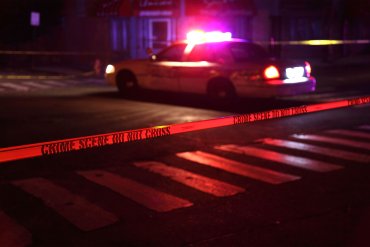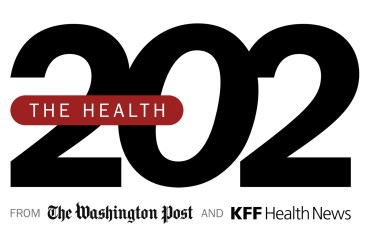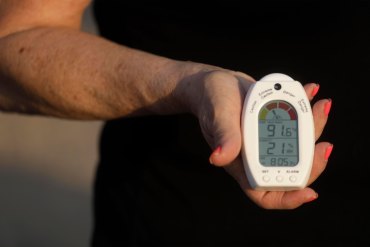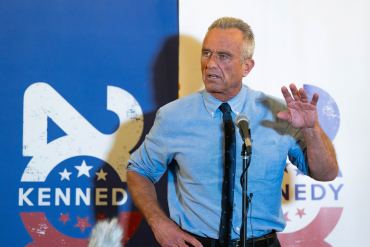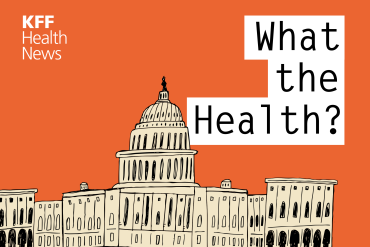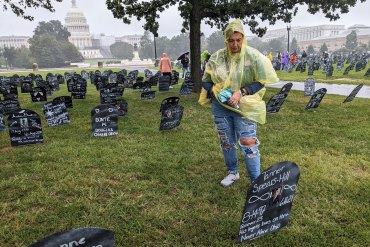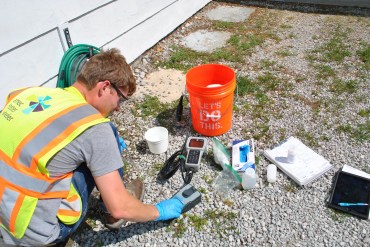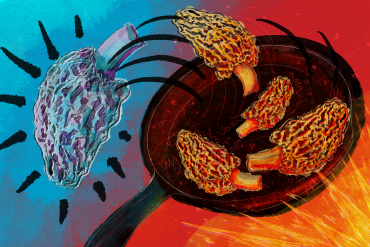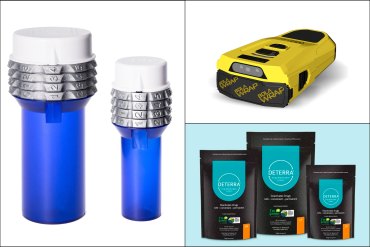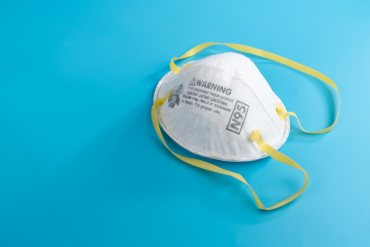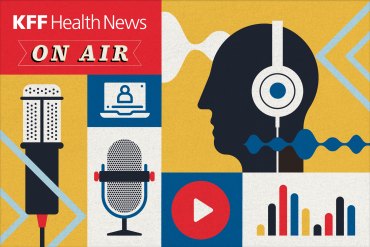States Begin Tapping Medicaid Dollars to Combat Gun Violence
The Biden administration is allowing states to use money from the insurance program for low-income and disabled residents to pay for gun violence prevention. California and six other states have approved such spending, with more expected to follow.
‘Forever Chemicals’ Contaminate America’s Freshwater Fish
Gone fishing? Depending on the lake, your catch may not be safe to eat. A group of chemicals collectively known as PFAS are found in hundreds of consumer goods, including dental floss, rain jackets and nonstick cookware. Over decades, these chemicals have spewed from manufacturing plants and landfills into local ecosystems, polluting surface water and […]
California protegerá a trabajadores del calor extremo en interiores
Sólo otros dos estados, Minnesota y Oregon, han adoptado normas sobre el calor para las personas que trabajan en interiores, según la Administración de Seguridad y Salud Ocupacional (OSHA).
California Is Poised to Protect Workers From Extreme Heat — Indoors
Only a few states have rules to protect workers from the growing threat of extreme heat, either indoors or outdoors. California is expected to adopt heat standards for indoor workers in spring, even as federal legislation has stalled.
RFK Jr.’s Campaign of Conspiracy Theories Is PolitiFact’s 2023 Lie of the Year
Debate and speculation are heating up over whether Robert F. Kennedy Jr.’s presidential campaign will factor into the outcome of the 2024 election. But one thing is clear: Kennedy’s political following is built on a movement that seeks to legitimize conspiracy theories.
What the Health? From KFF Health News: 2023 Is a Wrap
2023 was another busy year in health care. As the covid-19 pandemic waned, policymakers looked anew at long-standing obstacles to obtaining and paying for care in the nation’s health care system. Meanwhile, abortion has continued to be an issue in much of the nation, as states respond to the Supreme Court’s 2022 decision overturning the constitutional right to the procedure. This week, Rachel Cohrs of Stat, Sandhya Raman of CQ Roll Call, and Joanne Kenen of Johns Hopkins University and Politico Magazine join KFF Health News chief Washington correspondent Julie Rovner to discuss these issues and wrap up the year in health. Also this week, Rovner interviews KFF Health News’ Jordan Rau about his joint KFF Health News-New York Times series “Dying Broke.”
The Year in Opioid Settlements: 5 Things You Need to Know
In the past year, opioid settlement money has gone from an emerging funding stream for which people had lofty but uncertain aspirations to a coveted pot of billions being invested in remediation efforts. Here are some important and evolving factors to watch going forward.
Inside the Pentagon’s Painfully Slow Effort to Clean Up Decades of PFAS Contamination
Cost estimates balloon and complications mount as the Defense Department grapples with PFAS pollution at hundreds of its bases and surrounding communities.
Hongos misteriosos son el centro de brote de intoxicación alimentaria
Según el Código Alimentario de la FDA, la gran mayoría de las más de 5,000 especies de hongos carnosos que crecen naturalmente en América del Norte no han sido sometidas a pruebas de toxicidad.
Mysterious Morel Mushrooms at Center of Food Poisoning Outbreak
Federal officials issued their first guidelines on preparing morel mushrooms after a deadly food poisoning outbreak in Montana, noting the toxins in the delicacy aren’t fully understood.
‘They See a Cash Cow’: Corporations Could Consume $50 Billion of Opioid Settlements
As opioid settlement dollars land in government coffers, a swarm of businesses are positioning themselves to profit from the windfall. But will their potential gains come at the expense of the settlements’ intended purpose — to remediate the effects of the opioid epidemic?
What the Health? From KFF Health News: Abortion and SCOTUS, Together Again
The Supreme Court agreed this week to hear its first major case on abortion since overturning Roe v. Wade — one that could restrict the availability of the abortion pill mifepristone, even in states where abortion remains legal. Meanwhile, on Capitol Hill, lawmakers in the House and Senate finally moved to renew health programs that expired in October — but it’s likely too late to finish the job in 2023. Alice Miranda Ollstein of Politico, Riley Griffin of Bloomberg News, and Lauren Weber of The Washington Post join KFF Health News chief Washington correspondent Julie Rovner to discuss these issues and more. Also this week, Rovner interviews Jen Golbeck, a University of Maryland professor and social media superstar, about her new book, “The Purest Bond,” which lays out the science of the human-canine relationship.
Rift Over When to Use N95s Puts Health Workers at Risk Again
The Centers for Disease Control and Prevention is considering fuzzy guidelines on infection control in hospitals, critics say, leaving employers free to cut corners on N95 masks and other protective measures.
Republicans Once Championed Public Health. What Happened?
It wasn’t that long ago that Republicans were all-in on boosting public health spending. “The highest investment priority in Washington should be to double the federal budget for scientific research,” former House Speaker Newt Gingrich (R-Ga.) wrote in a 1999 op-ed in The Washington Post. Big spending increases for the National Institutes of Health soon […]
Journalists Delve Into Gun Violence, Medicaid’s ‘Unwinding,’ Opioid Lawsuits, and More
KFF Health News and California Healthline staffers made the rounds on national and local media this week to discuss their stories. Here’s a collection of their appearances.
Readers Slam Hospital Monopolies and Blame the Feds for Understaffed Nursing Homes
KFF Health News gives readers a chance to comment on a recent batch of stories.
Grassroots College Networks Distribute Emergency Contraceptives on Campus
Peer-to-peer efforts can meet a clear need among students whose colleges may not make sexual health products accessible or affordable.
Watch and Listen: Opioid Settlement Case Triggers Protests Outside the High Court
The Supreme Court heard arguments over whether the Sacklers, the family behind Purdue Pharma — which marketed OxyContin — could claim immunity from future lawsuits without claiming bankruptcy.
Explosive DeSantis-Newsom Debate Reflects Nation’s Culture Wars
The two governors exchanged heated verbal barbs when they faced off in a wide-ranging debate that covered various health-related topics, from abortion to gun violence.
‘Forever Chemicals’ Found in Freshwater Fish, Yet Most States Don’t Warn Residents
At least 17 states have issued PFAS-related fish consumption advisories, KFF Health News found. But with no federal guidance, what is considered safe to eat varies significantly among states, most of which provide no regulation.




